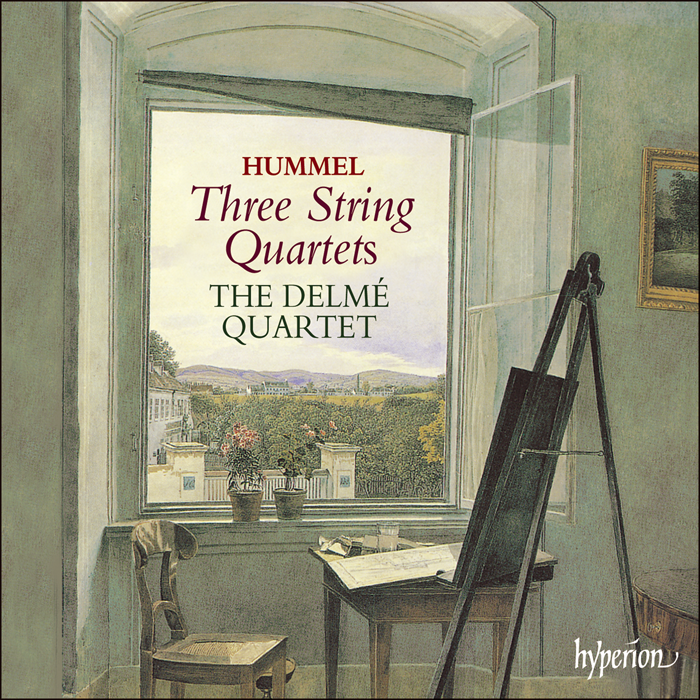Hummel's String Quartets
I can't say these works displace Haydn or Beethoven, but that is a very limiting measuring stick.
I generally get bored in the third movement of Classical Era works, those centered on dance forms such as the minuet. The repetitiousness irks me, I find the music is less inspired compared to the movements around the 3rd mvt., and I am usually left uninspired.
Not so with Hummel in these quartets; I think they are the centerpiece of his writing. String Quartet 1's 2nd movement Minuet is wonderfully cohesive instead of the normal upbeat / downbeat / upbeat pattern; instead he makes it all one idea which flows together so naturally.
In String Quartet 2, we get storminess from Hummel in Movement Three, a character not often portrayed by the composer. Most unexpected, though, is the B section which offers a sort of breezy serenade; it is all so characterful from the composer.
The 3rd String Quartet, if they must be ranked, is probably my least favorite of the trio, if such a thing must be said. Still, that 3rd movement sounds so grim compared to what I am used to, and I wish Hummel had leant into this mood more.
The string quartets of Hummel are worth exploring. The first is the strongest, but it is also arranged in a stranger manner. It is in the key of C Major, but begins in E-flat Major, the chromatic mediant! Hummel continues in this fashion throughout, preferring mediant relationships over the 'easy' key of C. At one point, the key signature is in B-flat, but there is Hummel chugging along in B Major. Some curious choices from the composer.
A review from 2024
Johann Nepomuk Hummel’s was a genius on the piano, so it is always interesting when he composes music away from his main instrument. His three string quartets are fairly early works, and luckily the whole lot fit one CD. Complete sets of Hummel’s String Quartets are rather hard to come by, good luck finding the Moyses Quartet, but luckily this Hyperion recording with the Delmé Quartet is a good one.
Hummel’s music will always be pleasant listening, for he comes from the genial propriety of the Classical Era. His music becomes most interesting when he subverts expectations, such as in his first SQ. It is centered in C Major, but Hummel spends most of his time away from the key, and his bandying between major and minor and unexpected jaunts are a treat.
SQ 2 & 3 are more traditional, although each, including the first, feature some of my favorite 3rd movement dance settings from the Era. Hummel is able to make them a single cohesive thought, and in the case of SQ 2, a sort-of Mediterranean serenade sings amongst a bit of gruff storminess that almost calls for a jangly harpsichord to rattle along underneath. The 3rd SQ third movement continues with some gruffness as well, a musical aspect not often shared by the composer.
The Delmé Quartet play with plenty of humor and songful sweetness. I could imagine another group leaping at this music a little harder, but it seems no one is chomping at the bit to record these works. Hyperion’s sound and liner notes are, as always, very fine.
Works
String Quartet in C Major, op. 30 no. 1 (25.19)
String Quartet in G Major, op. 30 no. 2 (25.24)
String Quartet in E-flat Major, op. 30 no. 3 (26.54)
Ensemble
Delmé Quartet
Label: Hyperion
Year: 1992
Total Timing: 78.01
What a joy to have all three of Hummel's string quartets gathered together, as it is very hard to find these elsewhere.
There is a lot to discover in these works, and for me it succeeds in a movement tradition I normally don't look forward to.
SQ1 is the standout here, but as always with Hummel, his charms reach across all of his music.
Find more Hummel recording HERE!


Comments
Post a Comment